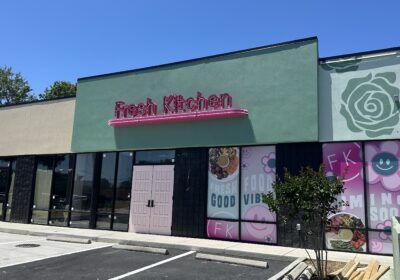Middle-aged actresses suddenly find themselves on top in Hollywood
Hollywood has always been seen as a land of 20-year-old ingnues staking their claim at the box office, working steadily and then quietly easing away from the camera once they pass the age of 35.
But change is stirring as it seems that older actresses, usually in the over-40 category, are getting more quality work.
“You Again,” a massive critical and commercial flop that has just been released on Blu-ray and DVD, has one unique feature that sets it apart from the endless horde of insipid romantic comedies: three of its five lead actresses are over the age of 50.
The three over-50 actresses – Jamie Lee Curtis, Sigourney Weaver and Betty White – have no reason to fear how their laugh lines and crow’s feet will fare against Blu-ray’s unforgiving high definition quality. Twenty-something’s Kristen Bell and Odette Yustman’s failure to drive the movie will distract all attention away from the older trio.
The biggest mistake the movie makes is in severely underusing the elder actresses and their characters’ potentially more meaningful relationship. They’re forced to play second fiddle to their younger counterparts and yet arguably played a much larger role in the film’s media campaign. White is only on screen for what can’t be more than five minutes combined, but is front and center on the film’s poster.
It is very clear that “You Again” was marketed with the over-50 crowd in mind, but the movie plays out like a standard high school-oriented romantic comedy with the older actresses thrown in like an afterthought.
Maybe White’s sudden takeover of pop culture in 2010 prompted the marketing demographic shift, making it appear that this movie was made for older audiences while the casting of the more established actresses was really just a way to let the final product gain a shred of prestige.
Despite “You Again’s” failure to draw in a crowd, there’s no denying its decidedly older selling points are signs of a shift. Older actresses are gaining ground in Hollywood. An actress turning 40 no longer has to live off scraps of roles until retirement. Today, it appears that middle age is the time most actresses are getting their best work.
This year’s Best Actress Oscar nominees, as well as Sandra Bullock’s win last year, are a testament to the film industry allowing women to be adults on screen. Nicole Kidman and Annette Bening are both nominated this year for playing mothers in movies that center around the woes of motherhood – well-treaded material in Hollywood that seems fresh this year, probably because neither actress had to dress down or glamorize their roles for the screen. Finally, they’re allowed to just be themselves, play their age and still get top billing.
However, both these roles appeared in films that didn’t get nationwide releases yet remain critics’ darlings.
Another beacon of hope for middle-aged Hollywood is Julianne Moore. She is 50 years old, and if you open any fashion magazine, she is lounging nude with tiger cubs in ads for luxury fashion brand Bulgari handbags.
Admittedly, Moore does not look like your average 50-year-old, but she is making no effort to look like she’s in her 20s or 30s, and puts the emaciated teenagers in other ads to shame. Her unrelenting acting career with increasingly meaty and interesting roles doesn’t hurt, either.
As the recent influx of female writers, directors and producers grows, maybe more commercially appealing roles for older actresses will pop up.
“You Again” provided an interesting look at marketing toward the somewhat untapped market of middle-aged women. Hopefully, the future may hold a film or two able to provide them something worth seeing and possibly change filmgoers’ perception of age and women.






